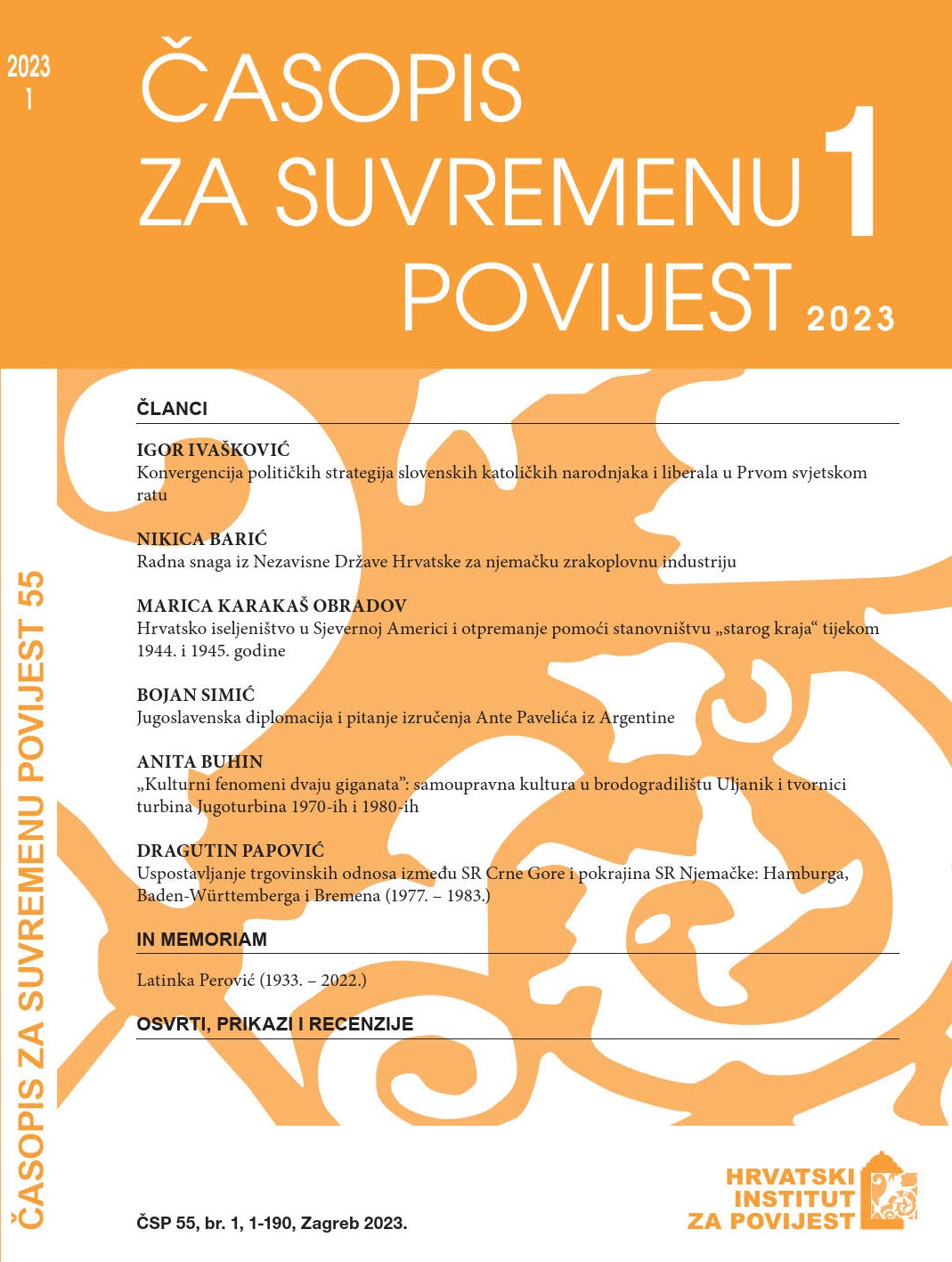Radna snaga iz Nezavisne Države Hrvatske za njemačku zrakoplovnu industriju
Workforce from the Independent State of Croatia in the Aircraft Industry of the German Reich
Author(s): Nikica BarićSubject(s): History, Labor relations, WW II and following years (1940 - 1949)
Published by: Hrvatski institut za povijest
Keywords: World War II; Independent State of Croatia; German Reich; Workforce; Forced labour; Aircraft Ministry of the German Reich;
Summary/Abstract: During World War II a large number of people from the Independent State of Croatia (ISC) went to work in the German Reich. Some of them volunteered for work in Germany, while others were forced labourers. Within this wider topic, this paper, based mostly on archival sources, describes how the workforce from ISC was mobilized to work in the German aircraft industry. The Minister of the Croatian Home Guard, marshal Slavko Kvaternik, agreed with the German representatives on mobilizing ethnic Serbs to the Home Guard and then to deport them to work in German aircraft factories. This was called the „Action Rittmeister von Koczian”, because the German representative in the ISC responsible for securing the workforce for German aircraft industry was Gustav von Koczian, a former Austro-Hungarian cavalry officer (Rittmeister). This action is interesting because, due to anti-Serb policies of the ISC regime, ethnic Serbs were initially not mobilized to serve in the Croatian Home Guards and only from mid-1942 were they mobilized into labour units. But even many of those who were mobilized into labour units were then transferred to work in German aircraft factories. Although exact data are not available, it is possible that at least around 10,000 Serbs were mobilized to the Home Guards and then sent to work in the German aircraft industry. These men were paid for their work in aircraft factories and were allowed to send a part of their income to their families in the ISC. They also were, under certain conditions, allowed to go on leave and visit their families. Nevertheless, a certain number of Serbs avoided mobilization and were sent to Germany, whereas some of them joined the Partisan units. Those who ended up in German factories were subject to ISC military rules and inspected by the Home Guard officers detailed to maintain discipline among these workers. Other workers from ISC, through different channels, were also employed in the German aircraft industry or worked as skilled ground personnel for Luftwaffe. All these workers represented a smaller, but not insignificant part of around 200,000 workers that, either voluntarily or forcibly, went from ISC to serve the German economy during World War II.
Journal: Časopis za suvremenu povijest
- Issue Year: 55/2023
- Issue No: 1
- Page Range: 35-49
- Page Count: 15
- Language: Croatian

